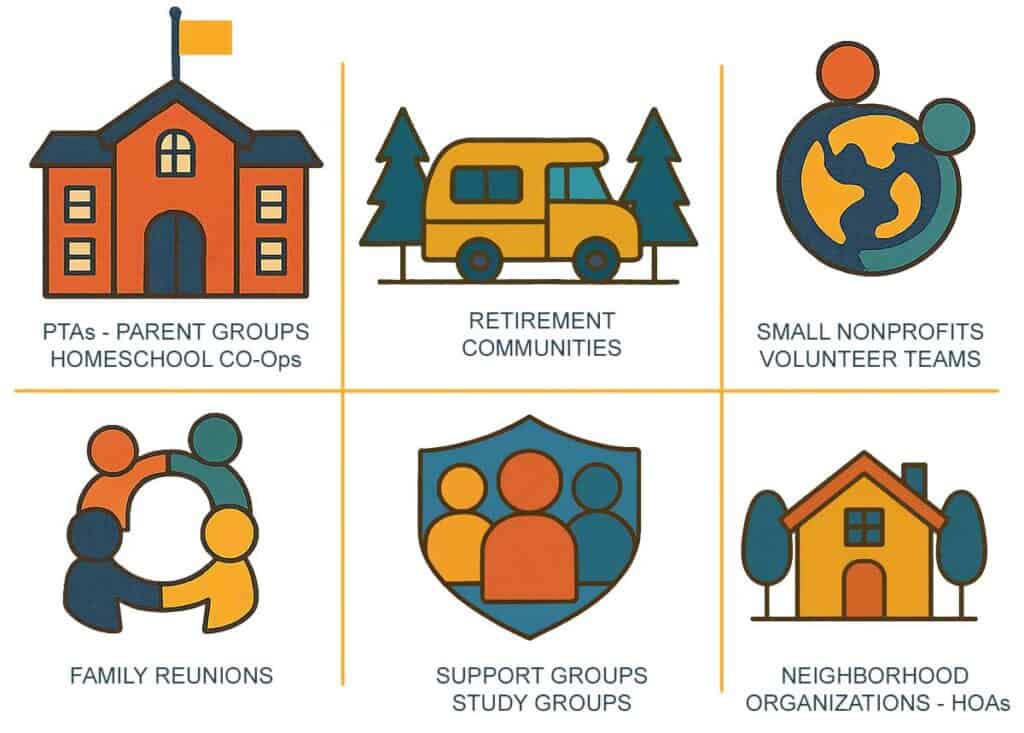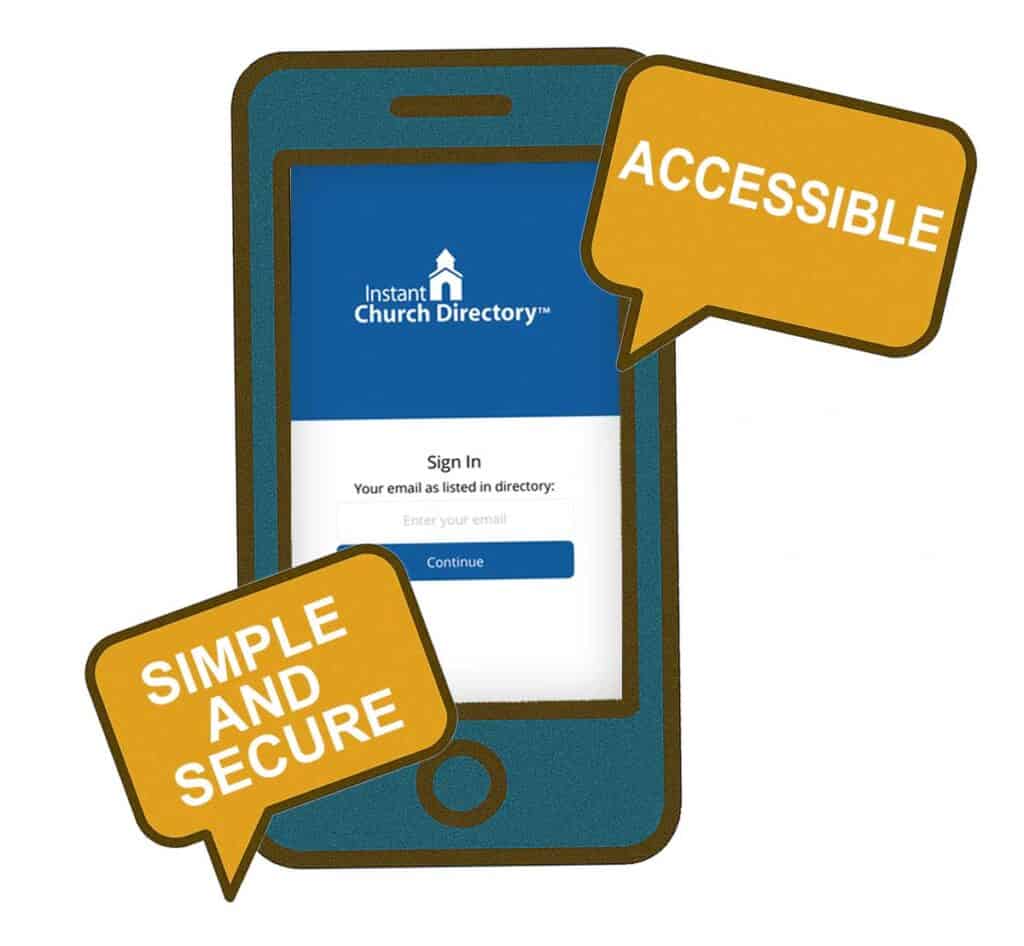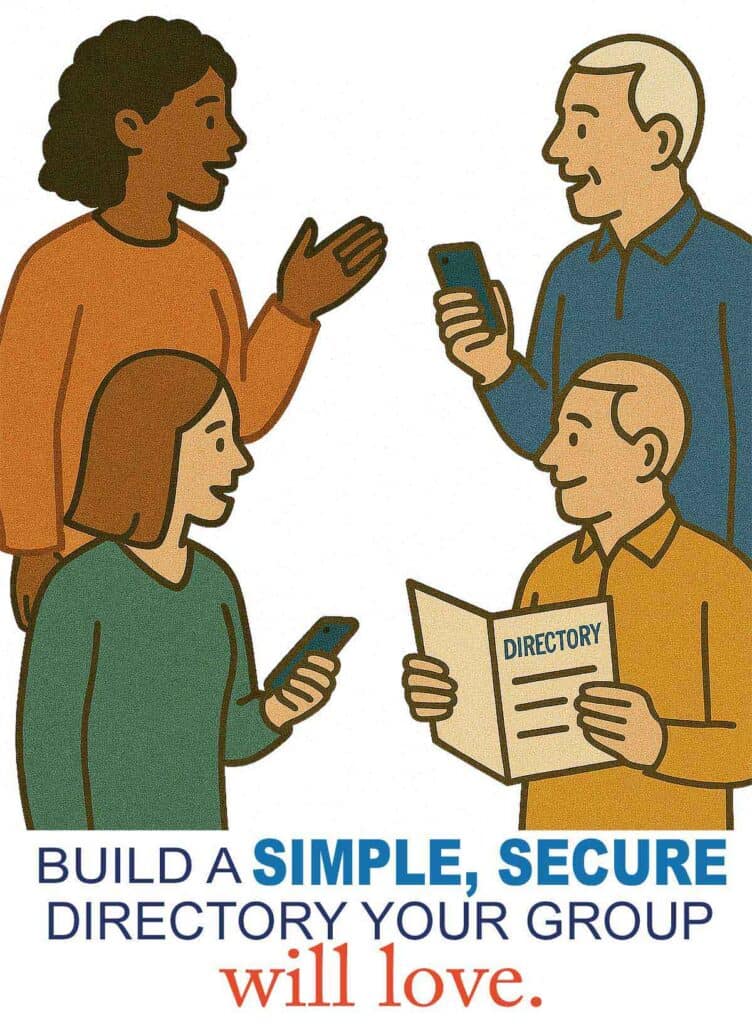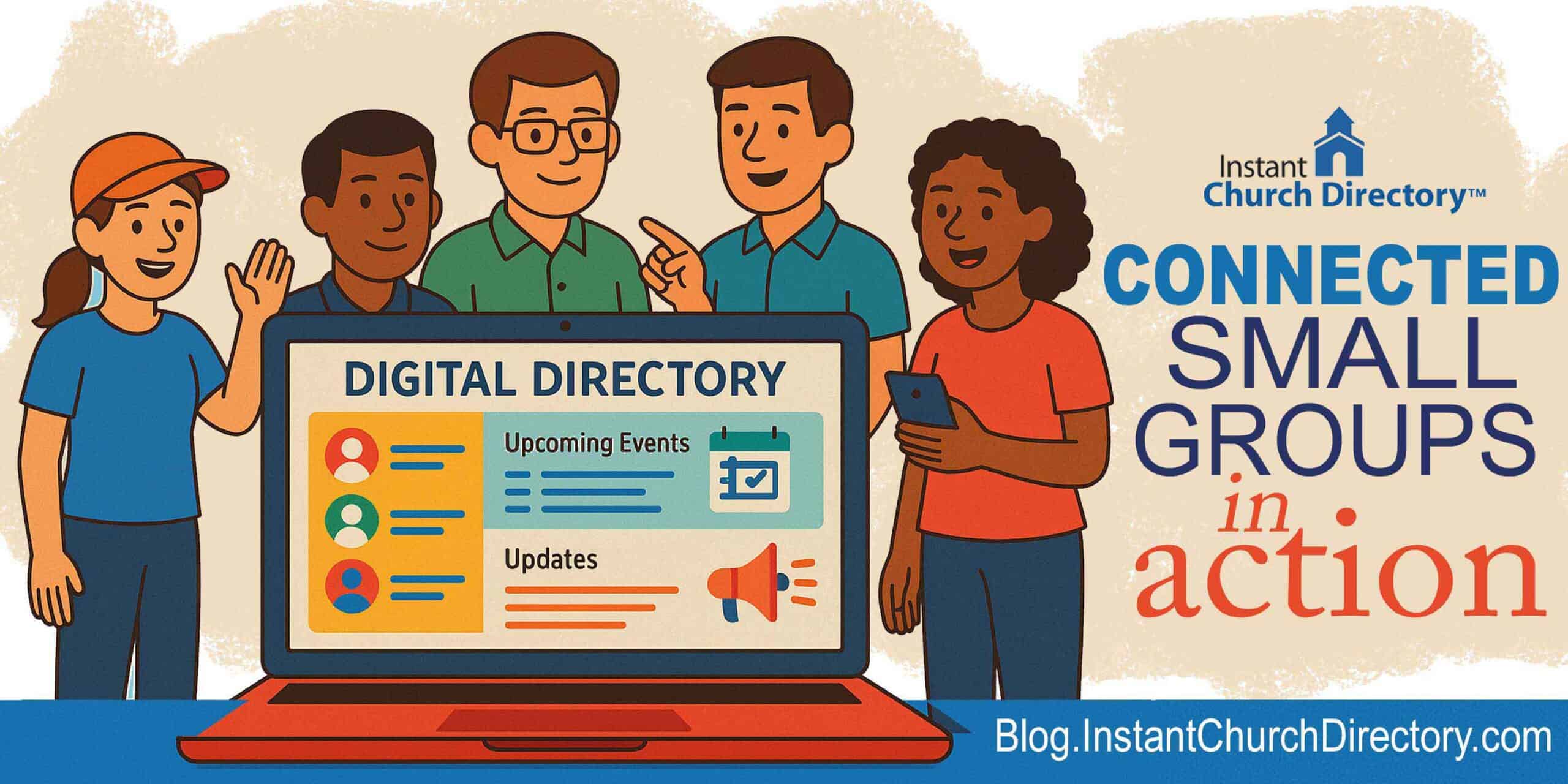The simplicity of a ministry directory tool is a major plus, especially for groups without dedicated customer support. If you’re organizing a small group of people, easy-to-use directory software provides the right balance of structure and flexibility.
Many organizations benefit from online directories for group management. Having a member access contact list, possibly paired with an organizational chart, helps team members stay in touch. Check out these creative, practical solutions for using a non-church directory as a communication hub:

Small Nonprofits and Volunteer Teams
- Keep track of volunteers, roles, and leaders
- Simplify outreach, updates, and event coordination
- Use a small group contact list to sort people by location, interest, or role
Neighborhood Organizations and HOAs
- Maintain an updated list of residents and service professionals
- Track board members, officers, or block captains
- Privately share announcements or event details
PTAs or Parent Groups and Homeschool Co-ops
- Use a family directory app to provide secure access to members, teachers, and staff
- With a school or homeschool group directory, parents can contact one another for rides, playdates, and school events
- Organize volunteers by classroom or committee
- Easily remove or add families to directory listings
Support Groups and Study Groups
- Store and access member names and phone numbers
- Keep group and member details private and confidential
- Provide birthday reminders and share announcements securely
Retirement Communities
- Use the photo directory service to help older residents recognize and contact one another
- Build relationships among residents, retirement community staff, and family members
- List apartment or unit numbers, emergency contacts, and more
Family Reunion Planning
- Create an easy-to-share family list
- Track addresses, email contacts, and generations
- Share plans, updates, and photos in one central space
Digital Directory Features for Small Groups
When evaluating online directory software, these features are key for non-church users:
- Accessibility — The tool should be available on mobile phones to boost member engagement. Whether your group includes busy parents or retirees with limited tech skills, the photo directory must work across devices and offer customization options.
- Simplicity — Non-church groups often don’t need elaborate features like event scheduling, finance tracking, and internal chat apps. What they do need are straightforward ways to add and update member info, upload photos, download or print a directory, and easily search and browse listings.
- Privacy — Group members want to know that their personal information is protected. A good work folio directory tool offers control over who can view, add, or edit listings. Some groups may want all contact information visible within the group; others prefer more limited access, such as leadership-only visibility for an enterprise plan.

When your directory system is straightforward, more people will use it. Plus, the administrator faces fewer tech hassles.
Online directory platforms originally created for faith communities let you adjust titles, roles, and categories. You can replace church-specific language (like “pastor” or “member family”) with terms that fit your group’s needs (like “classroom leader,” “volunteer,” “resident,” “committee chair”).
Keep in mind: Some people prefer a printed copy of a non-church group directory, while others want access on their phones or devices. A good tool offers both: a printable PDF version and an online version for instant updates.
How to Use a Directory Tool Effectively
After you choose a directory platform or website builder, make the most of this valuable resource. First, designate a main contact to oversee set-up and maintenance. This avoids confusion and keeps the directory consistent. Next, keep your private group directory current. Regularly check for outdated email addresses or missing profiles.
From the start, set clear boundaries. Be upfront about who has directory access, how contact information is used, and how to opt out. Finally, encourage participation and provide pointers about using the directory. Make it easy for individuals and families to submit their own info or updates, especially if they’re new.
Regularly remind group members how to access the directory and use it as a communication hub. For example, explain how to use an active directory to share group-wide updates and to call or email other members directly from the app.
A note about privacy: With services like Instant Church Directory, members can safely share phone numbers, emails, and photos. Unlike social media platforms, the directory tool is not public. However, schools and youth teams may need to add more privacy controls, to safeguard young people who use or access private information.

Q&A: Using an Online Directory Program for Non-Church Groups
- Is it odd for a secular or community group to use a “church” tool? Not at all! Though the names of services such as Instant Church Directory reflect the original audience, the features have no limits. Just think of it as a handy resource for keeping members connected.
- Do you need tech experience for setup? No. In fact, these platforms are built with ease of use in mind. If you can upload a photo or fill out a contact form, then you can manage a small-group directory.
- What if our group grows? Most online directory platforms can scale along with your organization. While most directory programs aren’t designed for massive organizations, they work well for small to midsized groups—up to a few hundred members.
- What does a digital directory service cost? Most directory tools aimed at small groups are budget-friendly, with a free plan or low-cost subscriptions. For advanced features or custom branding, you might pay a bit more for premium service.
If you need a simple directory solution for a community group, school organization, support team, or extended family, you don’t need to reinvent the wheel. A service that was originally created for churches easily adapts to fit your communication needs. In fact, the online directory program is a private, accessible, and secure solution to keep group members in the know.
Best Directory Software for Small Groups

Are you looking for an affordable online directory tool? Instant Church Directory is a straightforward, flexible service that works well for non-church groups and non-profits. Among low-cost directory tools for small teams, Instant Church Directory has the features and user-friendly reputation that administrators need.
Creating and maintaining a community directory should be easy — and must prioritize safety and privacy. That’s why Instant Church Directory is the digital directory service that churches and non-church groups recommend. The program offers the features, affordability, and support center you need.
If you’re already familiar with Instant Church Directory, consider upgrading to Instant Church Directory Premium for extra features of this mobile-friendly app. For your team, community, or organization, bonuses include custom color and branding, including the ability to add your group’s logo. Plus, you can access custom menu labels to adjust directory language. Also, with Instant Church Directory Premium, your organization’s directory can have unlimited editors.
Make Instant Church Directory your go-to private directory service. Originally designed for church families, it’s perfect for keeping all types of groups, teams, and extended families in touch.

